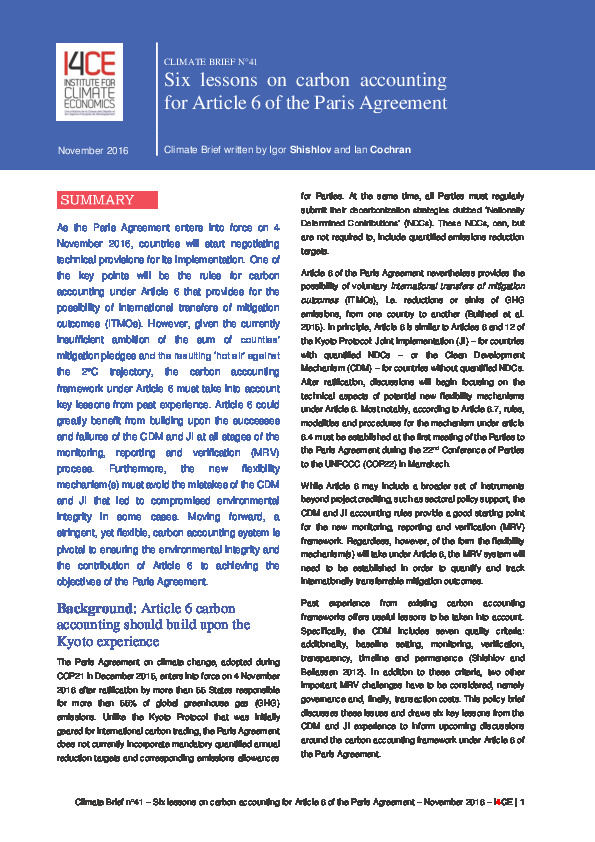Six lessons on carbon accounting for Article 6 of the Paris Agreement
A stringent, but flexible, MRV system is pivotal to mitigating the risk of future carbon crediting mechanisms compromising the ambition of the Paris Agreement. Namely, demonstrating additionality of projects and setting stringent emissions reduction baselines serve as the main tools to safeguard environmental integrity of the mechanism, especially given the insufficient ambition of current NDCs to reach long-term mitigation objectives.
The new MRV framework will have to strike a balance between removing barriers – i.e. high transaction costs associated with more stringent MRV – and increasing economic efficiency – i.e. the amount of emissions reduced per dollar invested.
Article 6 may greatly benefit from building upon the CDM and JI experience at all stages of the MRV process without the need to reinvent the wheel. At the same time, the new flexibility mechanism(s) must avoid the mistakes of the CDM and JI that led to compromised environmental integrity in some projects. This policy brief discusses these issues and draws six key lessons from the CDM and JI experience to inform upcoming discussions around the carbon accounting framework under Article 6 of the Paris Agreement.
